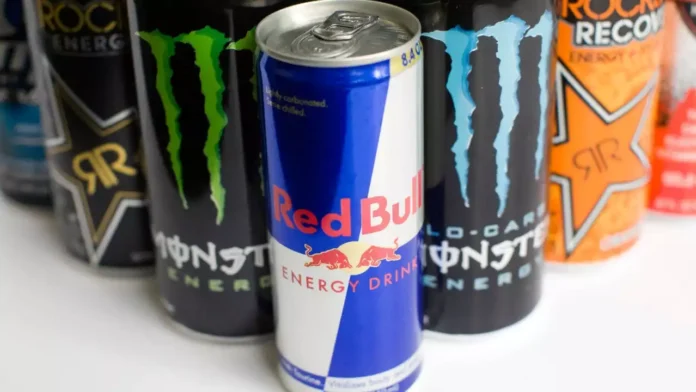As the consumption of caffeinated energy drinks continues to soar, particularly among teenagers, athletes, and gym enthusiasts, the industry is facing scrutiny by the government. This surge, marked by significant double-digit growth, can be attributed to the increased affordability and availability of high-caffeine energy drinks compared to previous options.
Food Safety and Standards Authority of India (FSSAI) is re-evaluating existing regulations for energy or caffeinated drinks to make them stricter, a senior executive at the national food regulator said on condition of anonymity.
Brands like PepsiCo, Coca-Cola, and Hell are offering energy drinks at approximately one-fourth of the price of global category leaders such as Red Bull and Monster. They’ve also expanded their reach by selling these drinks in grocery stores. Company executives, referencing data from researcher NielsenIQ, noted that energy drink sales are growing at a rate of 50-55% annually.
Nevertheless, the increasing consumption of energy drinks, especially among young people, is raising concerns due to studies indicating potential health impacts from excessive intake. A report in the medical journal BMJ Open published in January highlighted that excessive consumption of energy drinks is linked to disrupted sleep patterns and insomnia. Additionally, various global news reports have highlighted risks such as anxiety and dehydration, as reported by the health portal Medical News Today.
Continue Exploring: Controversy surrounds influencer-backed energy drink PRIME as lawmakers and experts question alarming caffeine levels
According to the official mentioned earlier, the FSSAI intends to mandate companies to provide certain disclosures, such as prominently displaying the caffeine content or using labels like “high in caffeine“.
“Even though it is mandatory to disclose caffeine content on the pack now also, we want it to be written prominently,” he added.
The executive mentioned that the upcoming regulations might also require prominently displaying a consumption limit for caffeine on packaging.
In 2016, the regulatory body mandated that all non-alcoholic beverages containing more than 145 mg of caffeine per liter must be labeled as ‘caffeinated beverages’. Additionally, they set a cap on the caffeine content in beverages at 300 mg per liter, regardless of the caffeine source.
“As of now, we have no information on this (new regulations for caffeine drinks). We are unable to comment until we review any regulations that may be under consideration,” stated George Kovoor, Senior Vice President at PepsiCo India Beverages.
“PepsiCo is committed to complying with all laws and regulations of the country,” he added.
Unnikannan Gangadharan, country head of Hell Energy India, said, “If there is (any information on changes), we heartily welcome any regulation which benefits consumers.”
As of press time, queries directed to Coca-Cola remained unanswered.
PepsiCo’s energy drink, Sting, currently the snacks and beverages major’s fastest growing brand, contains 72 mg of caffeine per serving in a 250 ml can, as indicated on its packaging. In comparison, Coca-Cola’s rival product, Thums Up Charged, contains 61.5 mg of caffeine in its 250 ml packs.
Continue Exploring: Sting sets new record as PepsiCo’s fastest-growing brand, outpacing traditional soft drinks
Both brands are priced at INR 20 for 250-ml bottles. Additionally, Sting is offered in 250-ml cans, which are priced at INR 35.
Other energy drink brands such as Hell, Hurricane, Hustle, and Rider are being sold for prices ranging between INR 50 and INR 60 for 250-ml cans.
In contrast, a 250-ml can of Red Bull costs INR 125, whereas its 500-ml cans are priced at INR 370. Monster is priced at INR 349-370 for 500 ml cans.
Red Bull and Monster are distributed through select channels such as modern trade stores, high-end restaurants, and bars, rather than being mass-marketed.
On the contrary, Sting, Thums Up Charged, and Hell are marketed similarly to conventional drinks.
In October last year, Hell Energy Drink signed cricketers Shardul Thakur and Mohammad Shami as its brand ambassadors, marking the launch of limited edition packs named Hell Cricket Crazy. Additionally, Hell has co-sponsored the AT&T Williams Formula One Team.
Continue Exploring: Radiohead Brands raises $1.3 Million in funding, expands into energy drinks market with launch of ‘Hustle’





